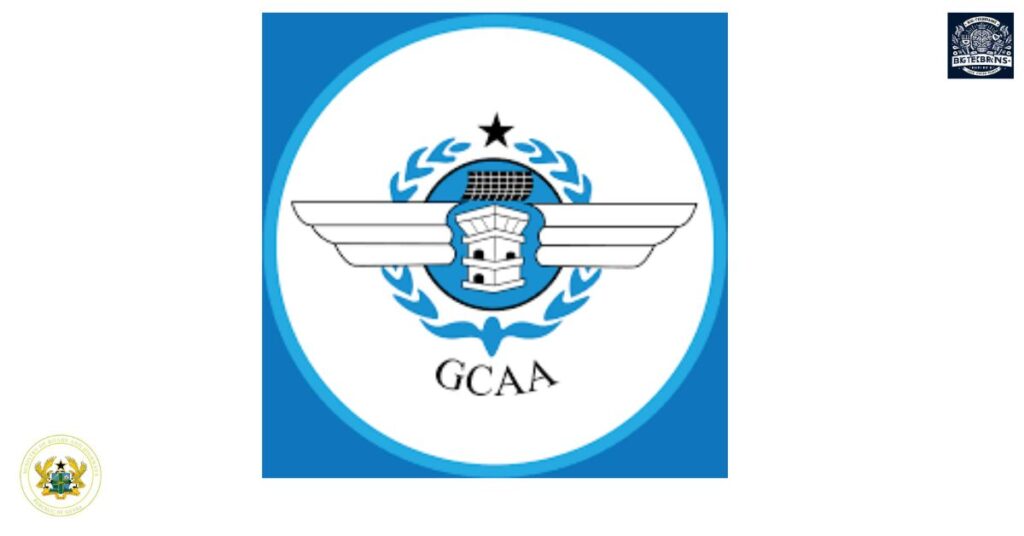Excerpt
The Ghana Civil Aviation Authority (GCAA) serves as the regulatory body overseeing air transportation within the Republic of Ghana. Established in 1930 as a unit within the Public Works Department, it achieved departmental status in 1953 under the Ministry of Transport and Communications. On May 16, 1986, the GCAA was transformed into a corporate entity under the Provisional National Defence Council (PNDC) Law 151. Further restructuring occurred on January 1, 2007, leading to the creation of the Ghana Airports Company Limited (GACL), allowing the GCAA to focus on its core functions of airspace management and safety regulations.
Constitutional Mandates
Under the Ghana Civil Aviation Act, 2004 (Act 678), the GCAA’s primary functions include:
- Licensing and certification of air transport operators.
- Licensing and certification of aerodromes, as well as the construction, operation, maintenance, and management of navigation sites.
- Provision of air navigation services within the Accra Flight Information Region (FIR).
- Regulation of air transport services.Promotion of the development of the civil air transport industry in Ghana.
- Advising the government on all matters concerning civil aviation.
These mandates ensure the GCAA maintains oversight of all activities related to civil aviation in Ghana.
Leadership and Organizational Structure
The GCAA is governed by a Board of Directors, which includes a Director-General and two Deputy Directors-General. The Director-General serves as the chief executive officer, overseeing the daily operations of the Authority. The organizational structure comprises various departments, each responsible for specific functions to ensure efficient management and regulation of civil aviation activities.
Offices and Units
The GCAA operates through several specialized units, including:
Safety Regulation Department:
- Oversees the implementation and enforcement of safety standards.
Air Traffic Services:
- Manages air traffic control operations.
Aerodrome Licensing and Certification:
- Handles the certification and oversight of airports and landing sites.
Air Navigation Services:
- Provides navigational support and services within Ghana’s airspace.
Recruitment and Appointment
Appointments within the GCAA are guided by the provisions outlined in the Ghana Civil Aviation Act, 2004 (Act 678). The Director-General and Deputy Directors-General are appointed by the Board, subject to the approval of the Minister responsible for aviation. Other staff members are recruited based on qualifications and experience, following established public service recruitment procedures.
Oversight and Ownership
The GCAA operates as an autonomous entity under the Ministry of Transport. While it functions independently, it remains accountable to the government, ensuring that its operations align with national policies and international aviation standards.
Partners and Stakeholders
The GCAA collaborates with various national and international stakeholders, including:
- International Civil Aviation Organization (ICAO): To align with global aviation standards.
- Airlines operating within Ghana: To ensure compliance with safety and operational regulations.
- Ghana Airports Company Limited (GACL): For the management and development of airport infrastructure.
- Meteorological agencies: To provide accurate weather information essential for flight operations.
Operations and Job Roles
The GCAA’s operations encompass a wide range of activities, including:
Airspace Management:
- Ensuring the safe and efficient movement of aircraft within Ghana’s FIR.
Safety Oversight:
- Conducting inspections and audits to uphold aviation safety standards.
Licensing and Certification:
- Issuing licenses to aviation personnel and certifying aircraft and aerodromes.
Regulatory Development:
- Formulating and updating regulations to keep pace with industry advancements.
Historical Reforms
Significant reforms in the GCAA’s history include:
2004:
- Enactment of the Ghana Civil Aviation Act, 2004 (Act 678), which redefined the Authority’s functions and facilitated the separation of airport management from regulatory duties.
2007:
- Establishment of the Ghana Airports Company Limited (GACL), allowing the GCAA to focus solely on regulatory and air navigation services.
2016 and 2019:
- Amendments to the Civil Aviation Act expanded the GCAA’s functions, incorporating international conventions and enhancing its safety and regulatory roles.
2024:
- Promulgation of the new Ghana Civil Aviation Act, 2024 (Act 1120), re-establishing the Authority as an autonomous entity responsible for aviation safety and security, and ensuring compliance with updated ICAO Standards and Recommended Practices.
References
- https://www.gcaa.com.gh/web/about-gcaa/
- https://www.brr.gov.gh/v2/acc/registry/docs/GHANA%20CIVIL%20AVIATION%20ACT%2C%202004%20%28ACT%20678%29.pdf
- https://siga.gov.gh/sector/ghana-civil-aviation-authority/
- https://thebftonline.com/2023/05/22/gcaa-celebrates-37-years-of-providing-world-class-regulation-and-air-navigation-services/
- https://www.gcaa.com.gh/web/wp-content/uploads/2018/Act_678.pdf
- https://www.gcaa.com.gh/web/wp-content/uploads/2018/directives/GCA_FLIGHT_STANDARDS_DIRECTIVE/PART_1_GENERAL_POLICIES_PROCEDURES_AND_DEFINITIONS.pdf
- https://en.wikipedia.org/wiki/Ghana_Civil_Aviation_Authority
- https://www.icao.int/WACAF/Documents/RASG%20AFI/RASG-AFI-6/ENG/IP05-%20RASG-AFI6%20-%20%20Formation%20of%20Air%20Navigation%20Services%20Agency%20-%20Ghana.pdf

